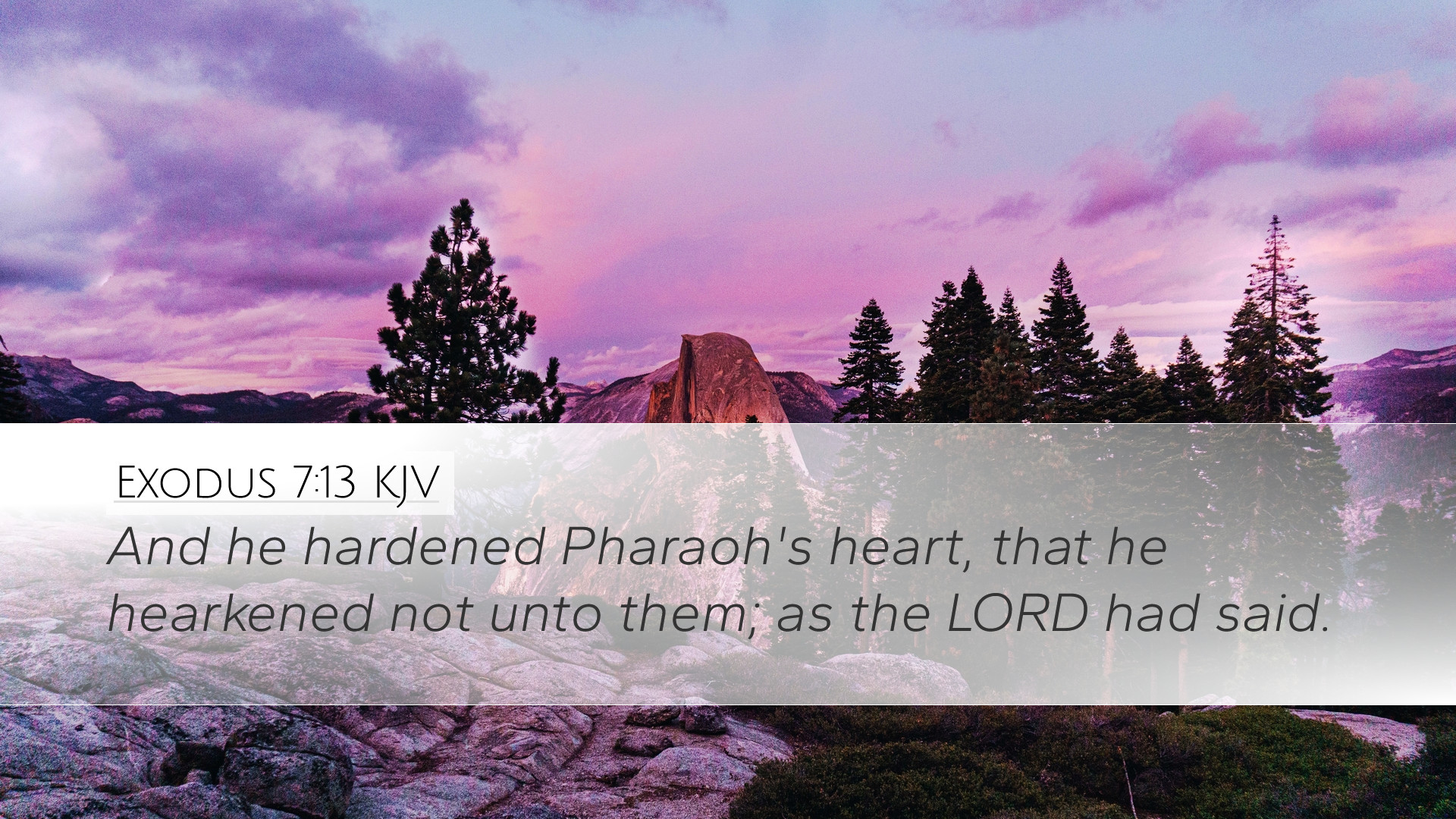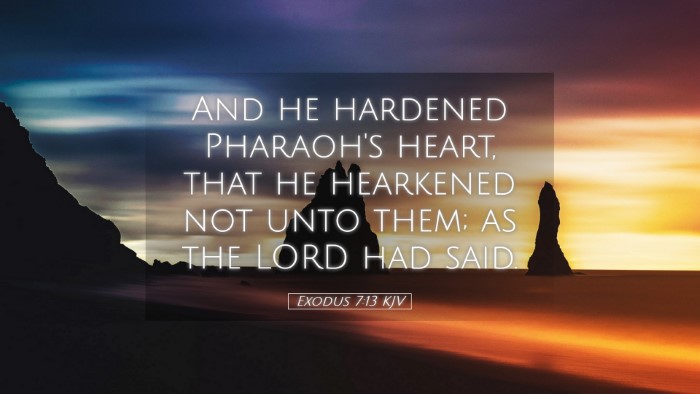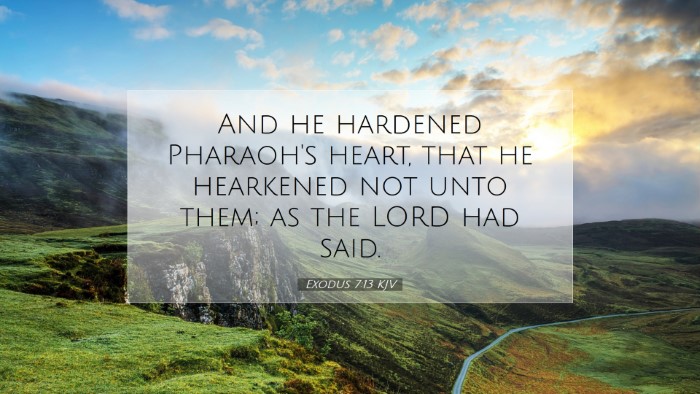Exodus 7:13 - Commentary
Verse: "And he hardened Pharaoh's heart, that he hearkened not unto them; as the LORD had said." (Exodus 7:13)
Introduction
This verse serves as a critical juncture in the narrative of the Exodus, demonstrating not only the unfolding drama between Moses and Pharaoh but also the theological implications of divine sovereignty and human agency. The commentaries of Matthew Henry, Albert Barnes, and Adam Clarke provide insightful reflections that explore the themes of divine hardening, the purpose of God, and the moral responsibilities of leaders.
Contextual Background
The broader context of Exodus involves God's covenant with Israel and His plan for deliverance from Egyptian bondage. Moses, chosen as a leader, embodies God's mission to confront the Pharaoh, leading to a series of plagues. This verse encapsulates the first stage of the hardening process of Pharaoh's heart, highlighting God's sovereignty in hardening hearts.
Moses and Aaron's Commission
Matthew Henry emphasizes the divine appointment of Moses and Aaron, underscoring their authority as representatives of God. God had promised that Pharaoh would resist, thereby establishing the ground for divine intervention and instruction. This hardening is not merely punitive but serves the ultimate purpose of demonstrating God's power over Egypt's gods.
Pharaoh's Role
Albert Barnes points out that Pharaoh's hardness of heart reflects his pride and obstinacy. Pharaoh's refusal to listen indicates a deeper spiritual blindness, where he dismisses the signs and wonders of God. This self-induced stubbornness results from a heart that not only rejects God's authority but also elevates his own power.
Theological Insights
This verse raises significant theological questions about the nature of God's sovereignty and human responsibility. The hardening of Pharaoh's heart is often debated, particularly regarding God's involvement in human choices.
Divine Sovereignty
Adam Clarke articulates that God's hardening of Pharaoh's heart serves to fulfill divine prophecy and purpose. It illustrates God's ultimate control over events, ensuring that His will prevails. This hardening was not an act of caprice but rather intertwined with God's redemptive plan for His people.
Human Responsibility
Conversely, there is an element of human agency in Pharaoh's response. While God hardens hearts, there is also a reciprocal aspect where individuals, through their choices, can contribute to their own spiritual desensitization. This duality prompts consideration of moral accountability for leaders and their responses to divine revelation.
Practical Applications
The implications of Exodus 7:13 extend beyond historical analysis; they present profound lessons for contemporary faith communities.
- The Importance of Obedience: The resistance of Pharaoh serves as a cautionary tale about the consequences of disobedience. Leaders must be vigilant in heeding God’s call and must not allow pride to impede their response to divine directives.
- Understanding Hardness of Heart: Reflecting on personal and communal hardness of heart can lead to spiritual renewal. One must be cautious of rejecting truth, as repeated negligence can lead to permanent desensitization to the voice of God.
- God’s Sovereignty in Our Lives: Believers can find assurance in God's sovereign control over history, knowing that His plans will ultimately prevail, even amid apparent chaos and opposition.
Summary
Exodus 7:13 serves as a rich text for exploration within its intricate theological themes and practical implications. Through the lenses of notable commentaries, it becomes evident that the hardening of Pharaoh's heart is deeply connected to the greater narrative of Israel's deliverance, showcasing the sovereignty of God while also reminding leaders of their moral responsibilities. As students, theologians, and pastors reflect on this passage, they are encouraged to engage with its complexities, seeking applications that inspire faithful obedience and recognition of God’s grand design.
Conclusion
In conclusion, Exodus 7:13 invites deeper contemplation of the dynamics between divine agency and human choice. By understanding the layers of meaning presented in this verse, readers are equipped to foster a nuanced appreciation for the interaction between God and humanity throughout scripture.


